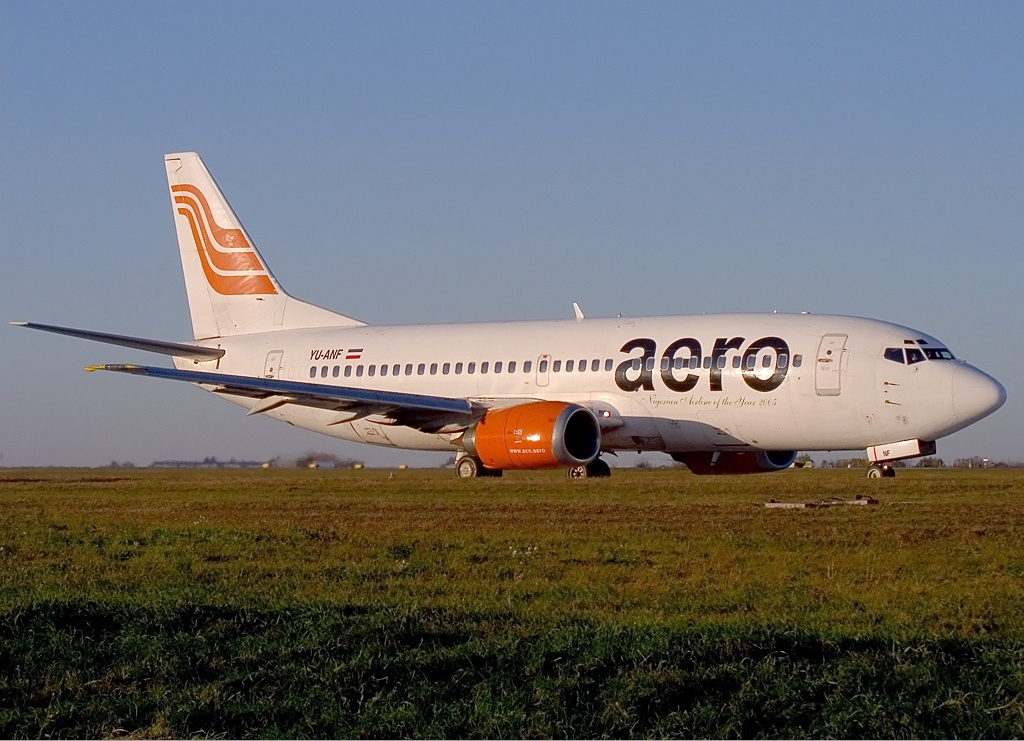- Explore Mergers, Experts Tell Airlines
Following the high frequency at which domestic airlines go out of business, experts in the sector have said that the option of mergers and acquisitions may be a lasting solution to the problem.
The Nigerian Civil Aviation Authority recently said that in the last 17 years, the number of registered domestic airlines operating in the country had dropped from 150 to about nine.
The NCAA said most of the operators collapsed because they were unable to meet the stringent regulatory requirements of the industry.
A former Managing Director, Federal Airports Authority of Nigeria, Mr. Richard Aisuebeogun, said a drop from 150 to nine was a colossal failure, adding that domestic airlines should begin to think of mergers as a hedge against economic crisis.
“Domestic airlines should consider mergers and acquisitions, which will enable them to spread risks, sustain their operations, provide better access to the international capital market and provide employment opportunities for the industry,” he said.
Aisuebeogun and other stakeholders, who spoke at an event organised by the Aviation Roundtable in Lagos, also opined that empowering the NCAA to enforce its economic as well safety regulations irrespective of third party agreements of airlines and other service providers, would help domestic airlines to grow.
“It is my opinion that effective financial assessment of the airline industry is dependent on close monitoring, adequacy and effectiveness of economic regulatory framework. Government subventions in the form of bailout funds should be objective and closely monitored by both the lender and industry regulator, the NCAA, in order to ensure that they are effectively and proficiently utilised by the beneficiary airlines,” he said.
According to him, there has been so much focus on flight operation standards and safety issues while little or no attention is paid to economic regulations, which is why airlines are sometimes mismanaged.
A former Director-General of the NCAA, Dr. Harold Demuren, said that for the NCAA to effectively carry out its duties, it must be free from political interference.
He stressed that people that should be in position of authority at the NCAA must be qualified.
Demuren said, “The government should not put people who are not qualified to be there. They should not put people who do not know what they are doing; and we must not get tired of talking to the government; we must let them know what has to be done.
“Any decision taken by the regulator has major effects on the industry; the man who is going to issue certificates for airworthiness, for instance, must be qualified, competent and experienced; he must know what he is doing. The NCAA’s autonomy is possible and stakeholders must fight for it. We must have safety regulations without political interference.”
Demuren said the failure of domestic airlines was due to poor safety and financial regulations, adding that when he was the director-general of the NCAA, the minister tried to influence him into taking certain decisions that could be detrimental to safety but that he refused to be influenced by anyone’s decision.
The Director, Legal Services, Nigerian Airspace Management Agency, Anastasia Gbem, said the NCAA had autonomy not only to make regulations but also not to summit decisions on safety and security to anyone for approval.
An aviation security expert, Capt. John Ojikutu, said the director-general and other top officials of the NCAA were expected to have certain professional qualifications with cognate experience of at least 10 years, adding that ICAO would not bother itself about political appointees but the executive head and the operatives such as inspectors and instructors.
The Managing Director of Aero Consults Limited, Mr. Ade Obadofin, stated that the regulator should place emphasis on safety analysis and evaluation based on data.
“There is a need to go beyond rule making alone; the NCAA should be talking about performance-based regulation,” he said.

 Naira4 weeks ago
Naira4 weeks ago
 News4 weeks ago
News4 weeks ago
 Naira4 weeks ago
Naira4 weeks ago
 Naira3 weeks ago
Naira3 weeks ago
 Jobs4 weeks ago
Jobs4 weeks ago
 Travel3 weeks ago
Travel3 weeks ago
 Naira3 weeks ago
Naira3 weeks ago
 Investment4 weeks ago
Investment4 weeks ago






























